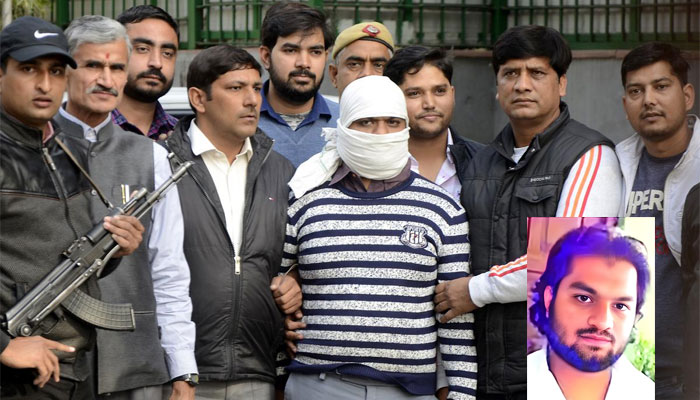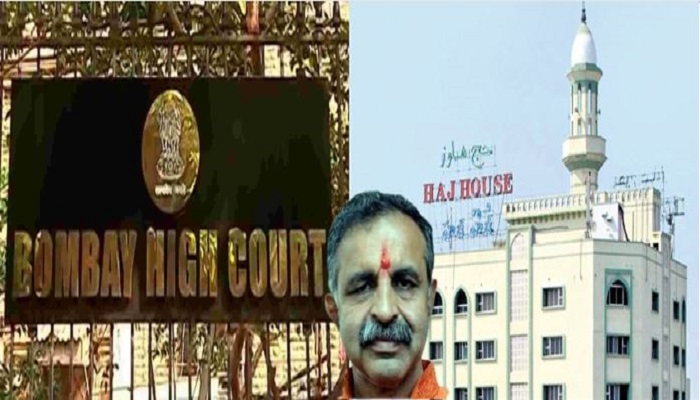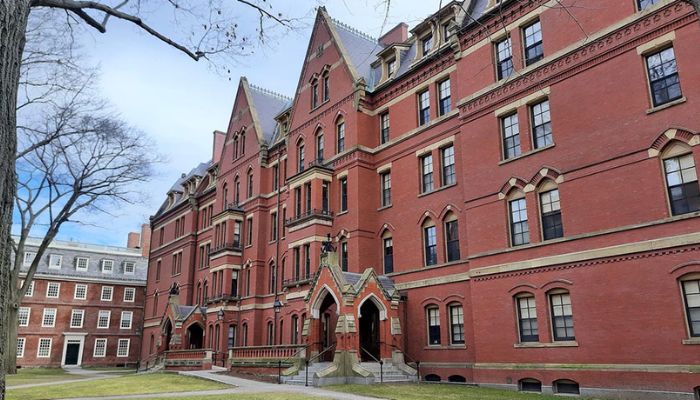Batla House encounter case: Delhi HC reserves judgement for terrorist Ariz Khan

[ad_1]
On 18th August, the Delhi High Court reserved its judgment on confirming the death penalty awarded to terrorist Ariz Khan in the Batla House encounter case of 2008. Decorated Delhi Police Inspector Mohan Chand Sharma lost his life in the incident.
Terrorist Ariz Khan was given the death penalty by Additional Sessions Judge Sandeep Yadav of Saket Court in Delhi in March 2021 after the court found him guilty of killing a police official. Khan challenged the sessions’ court judgment in the High Court in July 2021. The bench of Justice Siddharth Mridul and Justice Amit Sharma heard the matter.
Observations and judgment by sessions court against Ariz Khan
The death penalty is awarded in India in the rarest of rare cases. While announcing the death penalty for Khan, the Trial Court said, “The convict had forfeited his right to live on account of his despicable act of killing a police officer on duty.” After hearing the matter, the court concluded that the act of the accused came under the rarest of the rare cases, and thus, he deserved the maximum sentence provided under the law. The court held Khan guilty under Sections 186, 353, 333, 307, 302, 34, and 174 of the Indian Penal Code (IPC) and 27 of the Arms Act.
During the hearing in the sessions court, Khan’s counsel argued that another convict in the matter Mohammed Shahzad was awarded life imprisonment and as the role of both convicts were similar, Khan should be awarded life imprisonment too. Furthermore, he claimed Khan’s actions were not “pre-mediated”, and it happened suddenly. The counsel also tried to play the age card and said Khan was 24 years at the time, insinuating he was very young at the time of the crime.
The court categorically said that considering the factors, including the degree of brutality and mindset of the wrongdoer behind the crime, made the offence committed by Khan very severe. The justice in the case would be met only if Khan was awarded punishment in accordance with the gravity of the offence, which was no less than the death penalty. The court further added that the hateful and brutal act of firing on the police party without any provocation showed Khan was a threat to society and deemed him the State’s enemy.
Furthermore, a fine of Rs 11 lakh was imposed on Khan, out of which 10 lakh was directed to be paid to the wife of the deceased police official’s wife. The sessions court pointed out that Khan could pay the fine as his mother owned 1,380 square meters of land in the village Haripur of Tensil Sagri in the district Azamgarh of Uttar Pradesh.
What happened on the day of the Batla House encounter?
The Batla House encounter occurred in 2008 in Delhi’s Dalmia Nagar between Delhi Police and Indian Mujahideen terrorists on 19th September 2008. A team of Delhi Police had gone to the Batla House in response to a tip-off about terrorists behind the Delhi serial blast on 13th September 2008. On the fateful day, five serial blasts shook the National Capital, killing at least 30 people and injuring over a 100.
Two terrorists named Atif Amin and Mohammad Sajid were killed in the encounter while 3, including Ariz, had escaped. Inspector MC Sharma was martyred. Ariz was arrested near the Nepal border in 2018. He had a reward of 10 lakh rupees from the NIA and 5 lakh from the Delhi Police on any information leading to his arrest. Another terrorist, Shahzad, is facing life imprisonment for the case. Junaid, another terrorist who had escaped, is still at large.
Per the session’s court judgment, a police team led by deceased Inspector Mohan Chand Sharma had gone to the Batla House to arrest the persons involved in the Delhi blast case. There was no intention to kill the occupants of the flat, which was clear from the fact that the late Inspector Sharma knocked on the door at the flat and disclosed his identity saying, “Darwaza kholo police hai”.
Some of the team members were not even carrying arms. Furthermore, the police did not open fire on Mohammed Saif, who had locked himself inside the washroom and later surrendered before the police.
Based on the information that was proved on record in the court, the court concluded that Ariz Khan and his accomplices opened fire at the police officials without being “challenged, instinctively and while doing so killed one of the raiding police officials.” Head constable Balwant was injured in the shooting.
The court noted that deadly weapons, including AK47 and two pistols, were recovered from the flat. The defence failed to clarify why the convict and his accomplices kept the weapons. The court found substance in the submission of the public prosecutor for the State that Khan and his associates were carrying deadly weapons with the aim to kill anyone.
Ariz Khan was proclaimed offender
Notably, Ariz Khan managed to escape the crime scene after the shootout. He was declared proclaimed an offender in 2009. He was ultimately arrested in 2018. The court noted that Khan showed no signs of reformation or repentance during the investigation and trial.
Ariz Khan was involved in several terrorist activities
The court noted that Ariz was not only a threat to society but was also an enemy of the state. He was involved in various blast cases, including Delhi, Jaipur, Ahmedabad and UP, killing hundreds of innocent people and injuring many.
Sonia Gandhi cried over ‘visuals’ of Batla House encounter
In one of his rallies during the 2012 Uttar Pradesh Assembly elections, Salman Khurshid, a senior Congress leader, had said that Sonia Gandhi, the then Congress President, cried bitterly after seeing the images of the slain terrorists.
Khurshid had said, “When we showed Sonia Gandhi the images of the ‘incident’, she started crying bitterly and with folded hands, she said, please do not show me these pictures. Immediately go and speak to the Wazir-e-Azam (Dr Manmohan Singh) and discuss the matter. I talked to the PM, and it was decided that the matter will be further investigated.”
However, in 2019, Salman Khurshid retracted his statement and claimed that he was quoted out of context. He said, “I never said that. In fact, I was misquoted. There was a difference between what I had said and what the media projected. I had said that the then Congress President didn’t wish to see visuals of an encounter (as the images are painful in nature).” Except, it does not appear so.
While political opportunism is not new to Indian politics, the Batla House encounter was a glaring example of putting vote bank politics over the country’s interests. By insinuating that the probe was not independent, stirring sympathy for the terrorists, mocking the martyrdom of MC Sharma, and casting aspersions about the genuineness of the encounter, Congress, AAP and TMC have let the country down.
Arvind Kejriwal, Digvijay Singh and Mamata Banerjee’s reaction to the encounter
Arvind Kejriwal has a habit of questioning the actions of security forces. The habit goes back to the time when he was not Chief Minister of Delhi. 2013 Arvind Kejriwal demanded an ‘independent investigation’ into the Batla House encounter. Casting aspersions on the authenticity of the encounter, he said, “The court has said the youth (killed in the Batla House incident) were terrorists. I had said that even if they were terrorists, it was extremely important to catch them alive to know who their real handlers were. There needs to be an independent investigation to know if it was necessary to kill them.”
He had also insinuated that the martyrdom of Mohan Chand Sharma was an inside job. “It must also be probed under what circumstances the police officer (Mohan Chand) was killed,” Kejriwal emphasized. In a bid to draw Muslim voters, he said that his party members, such as Prashant Bhushan, have been fighting battles for Muslims like in a ‘fake Batla House encounter.’
Back in 2008, Trinamool Congress (TMC) supremo Mamata Banerjee had even vowed to quit her political career if her claim that the ‘Batla House encounter was fake’ turned out to be false. “The encounter was fake. If it turns out to be false, then I will leave politics.”
While addressing the media in July 2013 during his visit to Indore, Congress heavyweight leader Digvijaya Singh refused to apologise to the BJP over his claims that the Batla House encounter was fake. Singh stated, “I will never apologise. I still maintain that encounter was fake.” He further reiterated that those unhappy with the verdict in the Batla House case can appeal to the Court.
Singh, who had been demanding a judicial probe in the Batla House encounter, said, “I have not seen the court order, nor am I one of the parties in the case. The parties in the case can accept it or appeal against it. It will be their decision.”
[ad_2]
Source link



